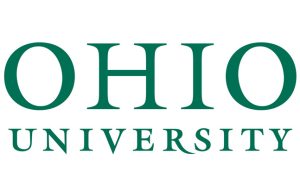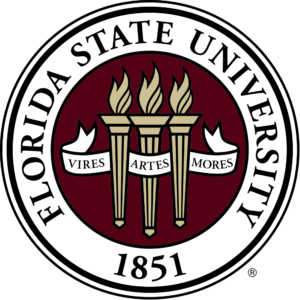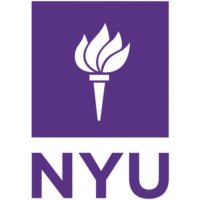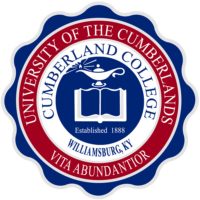According to the U.S. Bureau of Labor Statistics, Education is expected to continue its stable job growth through 2033, at a rate of about 5% over ten years, which is in line with the national average. The median salary for high school teachers is approximately $64,580, which is slightly higher than that of kindergarten, elementary, and middle school teachers.
Entry-level teaching positions typically require only a bachelor’s degree with certification/licensure, but many educators opt for a master’s with a subject concentration to:
- specialize in a curriculum
- earn potential promotions/raises
- ensure job stability
The most common on these degrees are Masters of Curriculum & Instruction, which consist of core requirements in theory and methodology, usually with an in-class requirement. From there, students complete courses in their area of specialization.
Methodology:
- Affordability (1/3): the estimated out-of-state tuition per credit hour.
- Flexibility (1/3): the range of flexibility-enhancing program components including accelerated courses, lenient transfer policies, prior or life experience credits
- Academic Prestige (1/3): the relative academic prestige of a parent institution according to other prominent rankings like the Princeton Review or US News.
To maintain their careers and have schedule flexibility, many teachers are enrolling in online master’s tracks. Below are our top master’s programs in Social Studies Education.
1. Wayne State College – Wayne, Nebraska
 Social Sciences Education Online Master’s Degree
Social Sciences Education Online Master’s Degree
Average Graduate Student Tuition: $7,923/year in-state and $7,923/year out-of-state
Wayne State College is a public college based in Wayne, Nebraska. WSC opened in 1910 after the state took over the Nebraska Normal College. Wayne State offers over 130 different programs of study, including online and on-campus programs.
The Curriculum and Instruction MSE features an emphasis in social sciences. The program is designed to prepare students for success in the classroom. Educators in secondary and post-secondary education will advance their skills and build a strong foundation. The 36-credit hour curriculum includes course content in:
- geography
- history
- political science
- psychology
- sociology
Students complete an additional six credit hours of electives along with a final research project to complete their degree.
2. University of Northern Iowa – Cedar Falls, Iowa
 Master of Arts in Social Science
Master of Arts in Social Science
Average Graduate Student Tuition: $10,230/year in-state and $$21,932/year out-of-state
The University of Northern Iowa was originally founded in 1876 as the Iowa State Normal School. Programs at UNI emphasize hands-on service learning. UNI is also considered Iowa’s number one school for teacher education.
UNI offers over 90 majors and 300 student clubs and organizations. As of the fall of 2021, there were over 9,200 students enrolled and over 1,500 faculty and staff.
The Social Science Master of Arts program at UNI is specifically designed for secondary social studies teachers who want to increase their knowledge and understanding of social sciences in the classroom. This 30-credit-hour social studies education degree online takes just seven semesters to complete. There is no thesis required, allowing students the time to pursue additional endorsements.
The masters in social studies education online uses a cohort model. This allows students to build their professional network while earning their degree. Online students benefit from an Enrollment Contact and Program Coordinator who assist them with registering for courses and navigating the college process.
3. New York University – New York, New York
 MAT in Secondary Education-Social Studies
MAT in Secondary Education-Social Studies
Average Graduate Student Tuition: $1,718/per credit hour
New York University, founded in 1831, has a total enrollment of about 58,000, split between undergraduate and graduate students. Among the top universities in the world and a so-called “New Ivy,” NYU is a highly esteemed institution. An 8:1 student-to-faculty ratio supports a highly collaborative, intimate learning environment, despite the school’s size. Over 60% of classes consist of fewer than 20 students. Financial aid opportunities are available, including federal financial aid and scholarships/grants.
NYU offers an Embedded MAT in Secondary Education (with a Social Studies track), consisting of 30 credits which are completed on an accelerated 30-month track. The embedded component requires students to complete a full year in a partner middle or high school (in CT, DE, NJ, or NY). This experience provides students valuable real-world experience that can be applied immediately upon graduation. Some example modules include:
- What Learning Environments Are Out There?
- What Do I Know Now as a Teacher and What Do I Need to Learn?
- What is Special Education?
- How Do I Know What They Know?
- What Are My Professional Responsibilities?
- How Do I Make a Difference with Research?
The program is accredited by the Council for the Accreditation of Educator Preparation.
4. University of the Cumberlands – Williamsburg, Kentucky
 Online Master’s in Teaching – Social Studies
Online Master’s in Teaching – Social Studies
Average Graduate Student Tuition: $4,282/year
Founded in 1888, The University of the Cumberlands, in Williamsburg, Kentucky, has a total enrollment of 19,000. Affiliated with the Kentucky Baptist Convention, the curricula incorporate Christian values, and the school places a special emphasis on service.
Each student must complete at least 40 hours of community service to graduate. The school’s 20:1 student-to-faculty ratio supports a dynamic and collaborative learning environment, and 70% of classes have fewer than 20 students. Financial aid is also available to reduce the cost of this online master’s teaching degree.
Cumberlands offers an MAT with a concentration in Social Studies (for 5-9 or 8-12). All graduates receive state licensure and certification by Kentucky’s Education Professional Standards Board. Example courses include:
- Educational Psychology
- Introduction to Educational Technology
- Classroom Behavior Management for Special Student Populations
- Methodology of Teaching
The program is designed for maximum flexibility to accommodate working professionals. Students may transfer up to 9 credits into the program, accelerating degree completion time (students typically take 18 months). All students have access to career support and advising.
5. University of Missouri – Columbia, Missouri
 MEd in Learning, Teaching and Curriculum – Social Studies Education
MEd in Learning, Teaching and Curriculum – Social Studies Education
Average Graduate Student Tuition: $10,447/year in-state and $28,605/year out-of-state
The University of Missouri – Columbia, founded in 1839, was the first public university west of the Mississippi River. (Today, there are satellite campuses in Rolla, Kansas City, and St. Louis.) Classified as an R1 by the Carnegie Foundation, Mizzou is widely regarded as one of the top public schools in the country and is a member of the Association of American Universities.
The student body stands at approximately 31,000, and the alumni network is extensive, with over 300,000 graduates worldwide. Missouri also offers a robust online program, including 90 undergraduate and graduate degrees. Over 15,000 students take at least one online course per year, and about 800 earn degrees.
Missouri offers an MEd in Learning, Teaching, and Curriculum with a concentration in Social Studies that consists of 33 credits. Core courses include:
- Human Learning
- Developmental Aspects of Human Learning
- Curriculum Leadership
- Using Assessment to Guide Instruction
Social studies specialization courses include:
- Issues in the Social Studies Classroom
- Social Studies and Technology
- Secondary Social Studies Curriculum
- Civic Education
- Inquiry Into K-12 History and Social Science
Each class follows a weekly format, consisting of lectures and assignments with supplemental text readings and discussion. Students complete course work according to their own schedule for maximum flexibility (students are expected to be working teachers and have already earned certification). All students must complete a terminal project or summative experience to graduate. The program is accredited by the Teacher Education Accreditation Council.
6. Franklin Pierce University – Rindge, New Hampshire
 Master of Education – Social Studies
Master of Education – Social Studies
Average Graduate Student Tuition: $23,940/year
Franklin Pierce University, founded in 1962 in New Hampshire, has a total enrollment of about 1,700, representing 40 states and 14 countries. With a 12:1 student-to-faculty ratio and average class size of 17, students experience an intimate, collaborative educational environment; 64% of classes consist of fewer than 20 students, and just 2% percent are more than 50. Franklin Pierce also has an excellent track record for financial aid. Admissions are rolling.
Franklin Pierce offers an MEd in Social Studies (5-12) with or without certification (39 or 36 credits, respectively). Designed to accommodate working professionals, all course work is built for maximum flexibility and available 100% online. An accelerated track allows social studies online students to complete the degree in as little as 18 months.
Students can begin the program in any one of four entry dates offered throughout the year. Students may also opt to complete the degree on a part-time basis. Core requirements include:
- Teaching and Learning in a Democratic Society
- Educational Psychology
- Teaching Literacy across the Curriculum
- Methods in Teaching Social Studies
- Scientific Inquiry and Teaching Methods
- Secondary School Teaching
FPU is accredited by the New England Association of Schools and Colleges.
7. Ball State University – Muncie, Indiana

Master’s Degree in Secondary Education – Social Studies
Average Graduate Student Tuition: $12,740/year in-state and $26,334/year out-of-state
Ball State University of a public research university located in Muncie, Indiana. There are over 20,000 students who attend virtual and face to face courses. Ball State is accredited by the Higher Learning Commission.
The master’s degree in secondary education at Ball State offers a 12-credit hour concentration for licensed teachers who want to focus on social studies education. Course offerings include:
- Instructional Strategies for Middle School and Junior High Classrooms
- Educational Ethics
- Sociology of Education
Online social studies master’s students can choose three electives from their content area to complete their degree. All courses are delivered 100% online and there is no GRE required for admission.
8. Slippery Rock University – Slippery Rock, Pennsylvania
 Master of Education-Social Studies Teaching
Master of Education-Social Studies Teaching
Average Graduate Student Tuition: $576 per credit hour; non-residents $797 per credit hour
Slippery Rock University is a public university and a member of the Pennsylvania State System of Higher Education. SRU was founded in 1889. Currently, there are over 8,000 students and the student to faculty ratio is just 19:1.
The Master of Education, Secondary Education in History at SRU is a comprehensive program for students with or without an initial teaching certification. The Basic Teaching Concentration is for students with their bachelor’s degree and undergraduate coursework in history or social studies. The Advanced Teaching Concentration is for certified teachers who want to advance their studies.
The curriculum includes courses in:
- pedagogy
- technology
- educational measurement
- educational foundations
These flexible programs take just one year to complete. While the Basic concentration includes both online and on-site courses, the Advanced program can be completed entirely online.
9. Ohio University – Athens, Ohio

Master of Social Sciences
Average Graduate Student Tuition: $14,582/year in-state and $17,436/year out-of-state
With an enrollment of almost 25,000, Ohio University is one of the oldest colleges in America and the ninth-oldest public university. Ohio University was chartered in 1804 and opened in 1809, and its central founder served as a chaplain in George Washington’s Continental Army. The school’s 18:1 student-to-faculty ratio allows for classes to be collaborative and intimate, and 30% of classes consist of fewer than 20 students.
Ohio’s Master of Social Sciences consists of 32 credits (8 courses), which can be completed on an 18-month accelerated track. Students taking one course per semester can still finish in less than three years. The curriculum is highly customizable. Students must choose between a colloquium in:
- U.S. History
- European History
- Middle East History
Students also select seven electives, three of which must be non-history courses. Some offerings include:
- State Politics
- Revolutionary Era
- World of Late Antiquity
- US Constitutional History
- Gender and Reality Television
- Political Parties
- The Cold War
All students must also pass a comprehensive exam to graduate. The program is designed for licensed teachers as well as public administrators and other professionals. The online master’s in social science curriculum is flexible to meet the needs of individual schedules. Further, by using the Blackboard learning platform, students have access to course materials 24/7 and group discussion boards.
10. Florida State University – Tallahassee, Florida

Online Master’s in Curriculum and Instruction
Average Graduate Student Tuition: $12,740/year in-state and $31,872/year out-of-state
Founded in 1851, Florida State University, in Tallahassee, has an enrollment of over 45,000 students. FSU is considered to be among the top public universities in the country, it has also been recognized for its affordability.
The school’s student-to-faculty ratio is 22:1, and over 30% of classes have fewer than 20 students (a good number for a school of its size). Less than 20% of classes have more than 50 students. Financial aid is available, as well: over half of students receive some form of aid.
FSU offers a Master’s in Curriculum and Instruction with a concentration in Social Studies Education. The program consists of 30 credits (10 courses), which part-time students can complete in 2 years. Core requirements include:
- Making Sense of Data to Inform Instruction
- Using Assessments in the PK-12 Classroom to Differentiate Instruction
- Culturally Responsive Teaching
- Teaching and Technology
- Teachers as Informed Curriculum Decision Makers
- Analyzing and Refining Teaching
- Adaptations and Accommodation for Learners with Disabilities
From there, students consult an academic advisor to plan Social Studies electives. All master’s students in social studies education are required to complete and defend a portfolio to graduate. Designed for maximum flexibility, all courses are asynchronous to accommodate working teachers.


 Social Sciences Education Online Master’s Degree
Social Sciences Education Online Master’s Degree Master of Arts in Social Science
Master of Arts in Social Science MAT in Secondary Education-Social Studies
MAT in Secondary Education-Social Studies Online Master’s in Teaching – Social Studies
Online Master’s in Teaching – Social Studies MEd in Learning, Teaching and Curriculum – Social Studies Education
MEd in Learning, Teaching and Curriculum – Social Studies Education Master of Education – Social Studies
Master of Education – Social Studies Master of Education-Social Studies Teaching
Master of Education-Social Studies Teaching